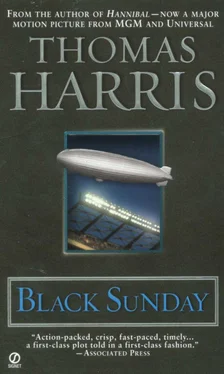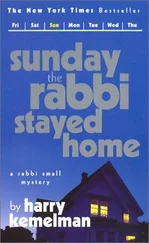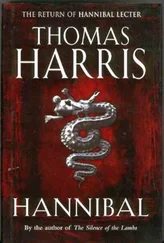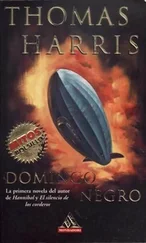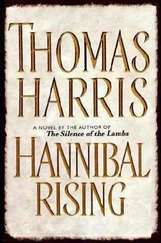THE DELTA JET APPROACHEDNew Orleans over Lake Pontchartrain, maintaining considerable altitude over the water, then swooped down toward New Orleans International Airport. The swoop lifted Muhammad Fasil’s stomach unpleasantly, and he cursed under his breath.
Pneumonia! The woman’s precious pet got drunk and fell out in the rain! The fool was half delirious and weak as a kitten, the woman sitting beside him in the hospital, bleating expressions of pity. At least she would see to it that he kept his mouth shut about the mission. The chances of Lander being able to fly the Super Bowl in fifteen days were exactly nil, Fasil thought. When the stubborn-headed woman was finally convinced of that, when she saw that Lander could do nothing but puke in her hand, she would kill him and join Fasil in New Orleans. Fasil had her word for it.
Fasil was desperate. The truck bearing the bomb was moving toward New Orleans on schedule. Now he had a bomb and no delivery system. He must work out an alternate plan, and the place to do it was here, where the strike would be made. Hafez Najeer had erred very badly in allowing Dahlia Iyad to control this mission, Fasil told himself for the hundredth time. Well, she controlled it no longer. The new plan would be his.
The airport was jammed with the crowd arriving for the Sugar Bowl, the college invitational bowl game that would be played in Tulane Stadium in three days. Fasil called eight hotels. All were full. He had to take a room at the YMCA.
The cramped little room was quite a comedown from the Plaza in New York, where he had spent the previous night—the Plaza, with the national flags of foreign dignitaries hanging in front and a switchboard accustomed to placing international calls. The flags of Saudi Arabia, Iran, and Turkey hung among the others during the present United Nations session and calls to the Middle East were common. Fasil could have had a comfortable conversation with Beirut, arranging for the gunmen to report to New Orleans. He had finished encoding his message and was ready to make the call when he was interrupted by Dahlia on the telephone, telling him of Lander’s stupid debacle. Angrily, Fasil had torn up his message to Beirut and flushed it down his elegant Plaza toilet.
Now he was stuffed in this shabby cell in New Orleans with the plan a shambles. It was time to look over the ground. Fasil had never seen Tulane Stadium. He had depended on Lander for all that. Bitterly he walked outside and flagged a taxi.
How could he make the strike? He would have the truck. He would have the bomb. He could still send for a couple of gunmen. He would have the services of Dahlia Iyad, even if her infidel was out of it. Although Fasil was an atheist, he thought of Lander as an infidel, and he spat as he muttered the name.
The taxi mounted the U.S. 90 expressway over downtown New Orleans and headed southwest into the afternoon sun. The driver kept up a steady monologue in a dialect barely intelligible to Fasil.
“These bums now don’t want to work. They want something for nothing,” the driver was saying. “My sister’s kid used to work with me when I was plumbing, before my back went out. I never could find him half the time. You can’t do any plumbing by yourself. You have to come out from under the house too many times, you don’t have nobody to hand you stuff. That’s why my back went out, all the time crawling under and coming back out.”
Fasil wished the man would shut up. He did not shut up.
“That there’s the Superdome, which I think they’re never gonna finish. First they thought it would cost 168 million dollars, now it’s two hundred million dollars. Everybody says Howard Hughes bought it. What a mess. The sheet metal workers took a walk first, and then…”
Fasil looked at the great bulge of the domed stadium. Work was under way on it, even through the holiday. He could see tiny figures moving on it. There had been a scare in the early stages of the mission that the Superdome would be completed in time for the Super Bowl, rendering the blimp useless. But there were still big gaps visible in the roof. Not that it mattered now anyway, Fasil thought angrily.
He made a mental note to investigate the possible use of toxic gas in closed stadiums. That might be a useful technique at some future time.
The taxi shifted into the high-speed lane, the driver talking over his shoulder. “You know, they were gonna have the Super Bowl there, they thought for a while. Now they got a terrific cost overrun because the city thinks it looks bad, embarrassing you know, not to be through with it. Double time and a half they’re paying to work on it through the holidays, you know. Put on a show of really hustling to finish it by spring. I wouldn’t mind some of that overtime myself.”
Fasil started to ask the man to be quiet. Then he changed his mind. If he were rude, the driver would remember him.
“You know what happened in Houston with the As trodome. They got cutesy with the Oilers and now they play in Rice Stadium. These guys don’t want that to happen. They got to have the Saints, you know? They want everybody to see they’re getting on with it, the NFL and all, so they work over the holidays too. You think I wouldn’t work Christmas and New Year’s double time and a half? Ha. The old lady could hang up the stockings by herself.”
The taxi followed the curve of U.S. 90, turning northwest, and the driver adjusted his sunshade. They were nearing Tulane University now. “That’s the Ursuline College on the left there. What side of the stadium you want, Willow Street?”
“Yes.”
The sight of the great, shabby tan-and-gray stadium aroused Fasil. The films of Munich were running in his head.
It was big. Fasil was reminded of his first close view of an aircraft carrier. It went up and up. Fasil climbed out of the taxi, his camera banging against the door.
The southeast gate was open. Maintenance men were coming in and out in the last rush before the Sugar Bowl game. Fasil had his press card ready, and the same credentials he had brought on his flight to the Azores, but he was not stopped. He glanced at the vast, shadowy spaces under the stands, tangled with iron, then walked out into the arena.
It was so big! Its size elated him. The artificial turf was new, the numbers gleaming white against the green. He stepped on the turf and almost recoiled. It felt like flesh underfoot. Fasil walked across the field, feeling the presence of the endless tiers of seats. It is difficult to walk through the focal area of a stadium, even an empty stadium, without feeling watched. He hurried to the west side of the field and climbed the stands toward the press boxes.
High above the field, looking out at the curve of the stands, Fasil recalled the matching curves of the shaped charge and, in spite of himself, he was impressed with the genius of Michael Lander.
The stadium spread its sides open to the sky, labial, passive, waiting. The thought of those stands filled with 80,985 people, moving in their seats, the stands squirming with life, filled Fasil with an emotion that was very close to lust. This was the soft aperture to the House of War. Soon those spreading sides would be engorged with people, full and waiting.
“Quss ummak,” Fasil hissed. It is an ancient Arab insult. It means “your mother’s vulva.”
He thought of the various possibilities. Any explosion in or close to the stadium would guarantee worldwide headlines. The gates were not really substantial. The truck possibly could plow through one of the four entrances and make it onto the field before the charge was set off. There would certainly be many casualties, but much of the explosion would be wasted in blowing a great crater in the earth. There was also the problem of traffic in the small, choked streets leading to the stadium. What if emergency vehicles were parked in the entrances? If the president was here, surely there would be armed men at the gates. What if the driver were shot before he could detonate the charge? Who would drive the truck? Not himself, certainly. Dahlia, then. She had the guts to do it, there was no question about that. Afterward, he would praise her posthumously at his news conference in Lebanon.
Читать дальше
